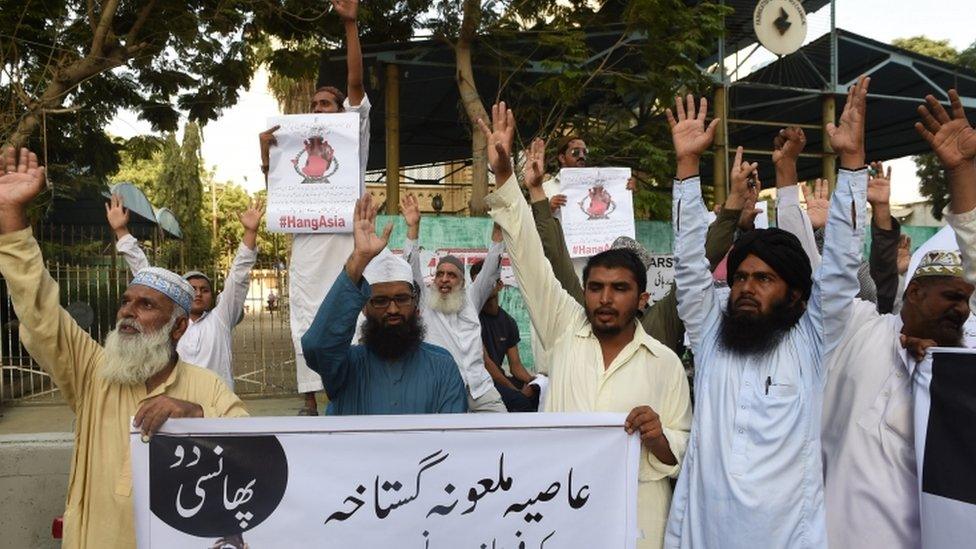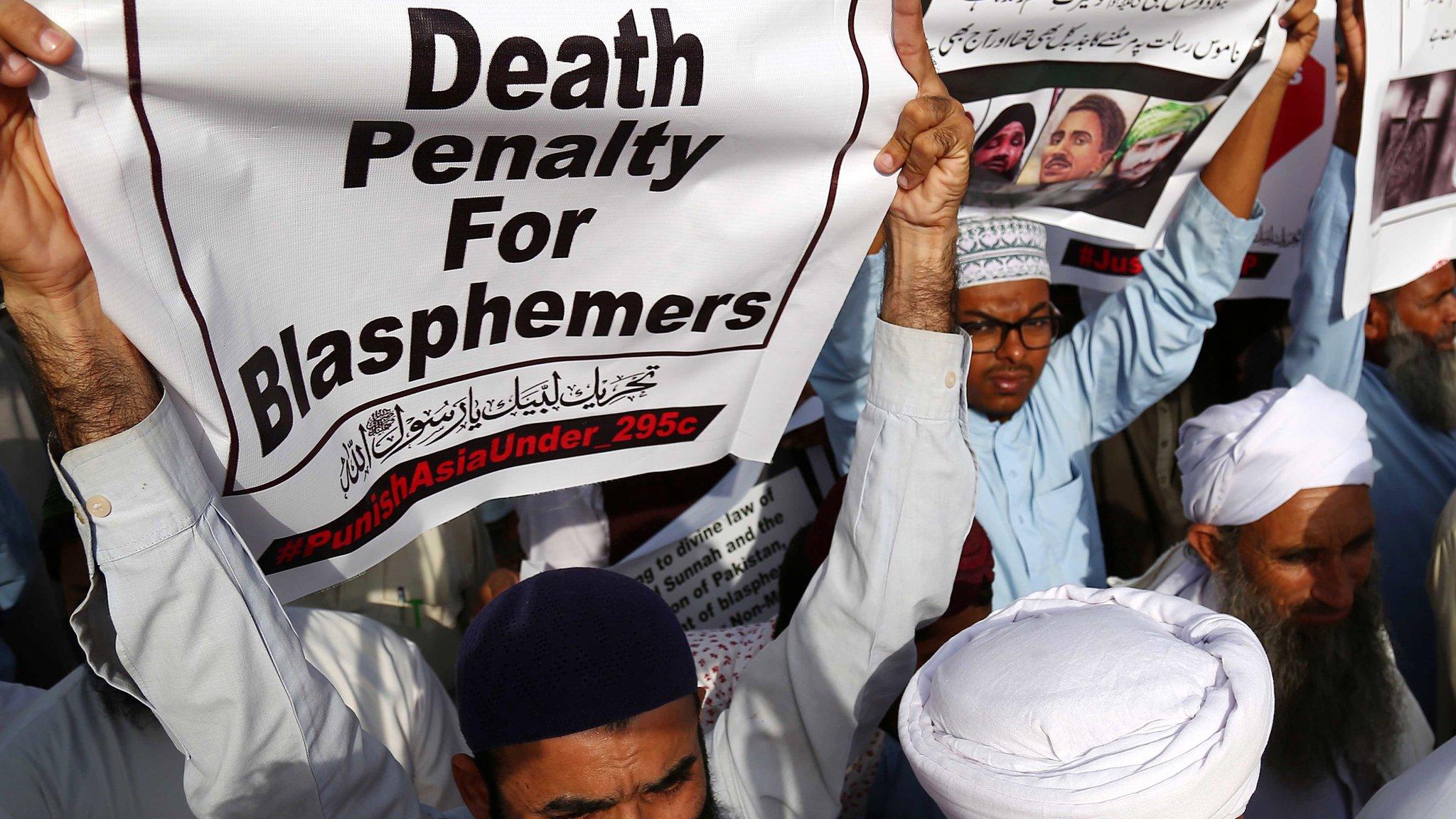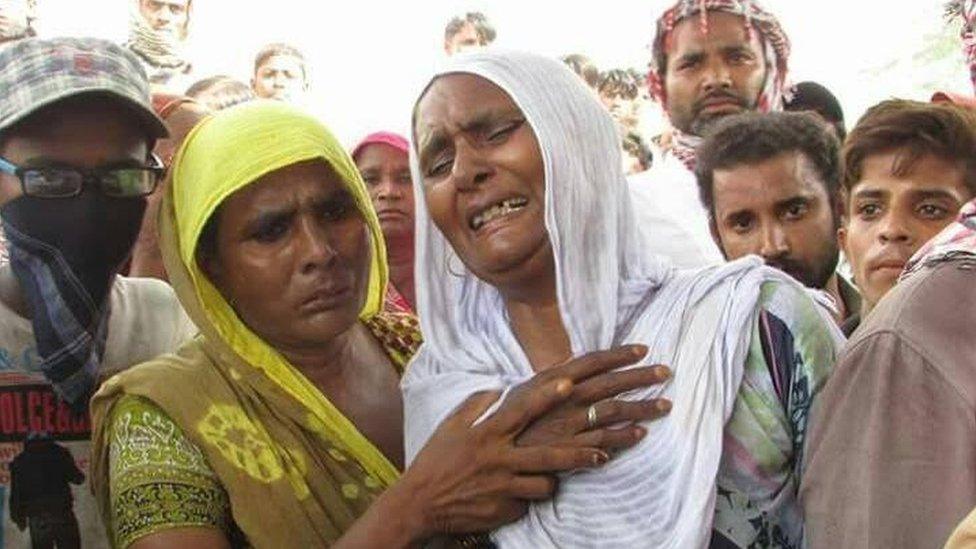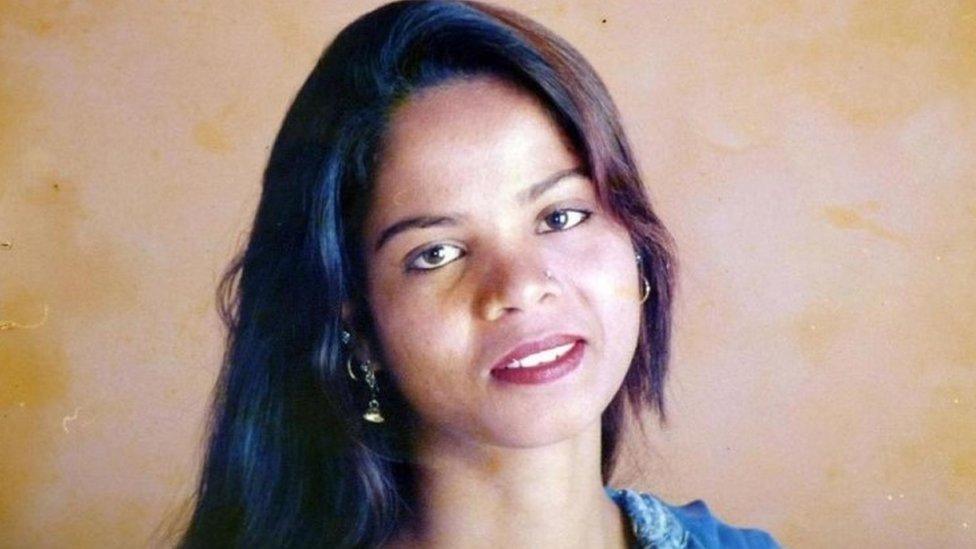Pakistan blasphemy riots: Dozens arrested after Hindu teacher accused
- Published

A video purporting to show the mob in Pakistan. The BBC could not independently verify its veracity
Dozens of people have been arrested in Pakistan after a teenager accused his Hindu headteacher of blasphemy, sparking riots.
The principal, who owns the school, was accused of making comments about the Prophet Muhammad in Sindh province.
A large mob then allegedly attacked a Hindu temple, shops and the school in the town of Ghotki on Saturday.
The principal is now in custody facing blasphemy charges. If found guilty, he could face the death penalty.
The rioters have also been charged under the blasphemy act, according to BBC reporters in Pakistan. However, they face a lesser charge of attacking a temple which does not carry the possibility of a death sentence.
Pakistani media reports say 43 people were charged in connection with the attack, external. A number of others were charged with rioting and theft, external, Dawn newspaper reports.
"Alleged accused in a sensitive case of Ghotki is now in the custody of police," Dr Jamil Ahmed, the additional inspector general of the local police force, tweeted., external
"Situation in Ghotki is back to normal within 12 hours. Fair investigation is being done after confirming facts and justice ensured. Cases against hooligans are being registered and miscreants being nabbed."

The unrest has sparked widespread comment on social media and revived debate about Pakistan's draconian blasphemy laws.
The Human Rights Commission of Pakistan has condemned the violence, sharing a video of the alleged destruction on Twitter.
"The video... is chilling: mob violence against a member of a religious minority is barbaric, unacceptable," it said in the post.
Asia Bibi's escape from Pakistan death row
The blasphemy laws have been under the spotlight internationally after Asia Bibi, a Pakistani Christian who spent eight years on death row, was freed from prison earlier this year, following a Supreme Court decision which overturned her conviction.
Her release sparked riots, and she was forced to seek safety in another country.
What are the blasphemy laws?
Islam is Pakistan's national religion and underpins its legal system. Public support for the strict blasphemy laws is strong.
Hard-line politicians have often backed severe punishments, partly as a way of shoring up their support base.
But critics say the laws have often been used to exact revenge after personal disputes, and that convictions are based on thin evidence.
The vast majority of those convicted are Muslims or members of the Ahmadi community who identify themselves as Muslims but are regarded as heretical by orthodox Islam.
Since the 1990s scores of Christians have also been convicted. They make up just 1.6% of the population.
The Christian community has been targeted by numerous attacks in recent years, leaving many feeling vulnerable to a climate of intolerance.
Since 1990, at least 65 people have reportedly been killed in Pakistan over claims of blasphemy.
- Published8 May 2019

- Published31 October 2018

- Published11 June 2017

- Published8 May 2019
